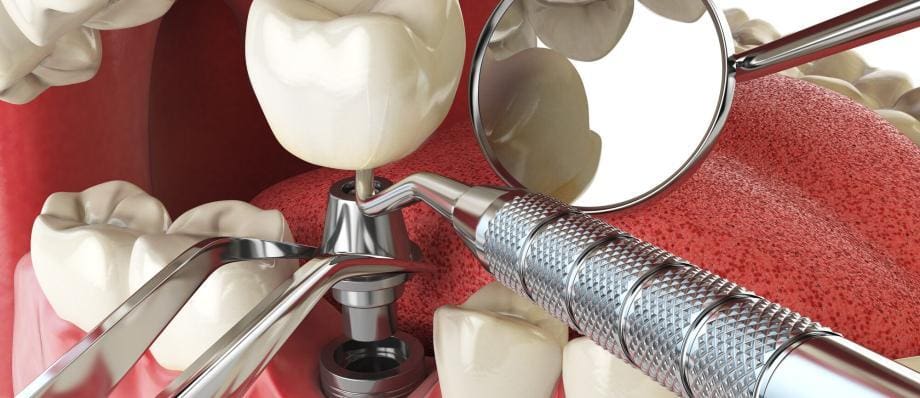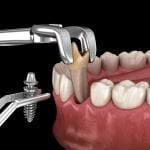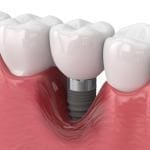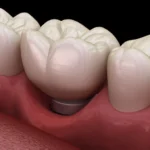Dental implants have become a popular solution for replacing missing teeth. They are a more permanent and long-lasting alternative to dentures or bridges. Dental implants are made of titanium, a biocompatible material that fuses with the jawbone to create a strong foundation for a replacement tooth. In this article, we will discuss the dental implant procedure in detail.
What is Dental Implant Procedure
- Consultation and Treatment Planning
- Implant Placement
- Osseointegration
- Abutment Placement
- Crown Placement
Consultation and Treatment Planning
The first step in the dental implant procedure is a consultation with a dental professional. During this consultation, the dentist will evaluate your oral health and discuss your treatment options with you. They will take x-rays and perform a thorough examination of your mouth to determine if you are a good candidate for dental implants.
If you are deemed a good candidate, the next step is treatment planning. This involves deciding on the number of implants needed, the type of implant, and the placement of the implant. The dentist will also discuss the cost of the procedure and answer any questions you may have.
Implant Placement
The next step in the dental implant procedure is the placement of the implant. This is typically done in a dental office under local anesthesia. If you are anxious about the procedure, the dentist may offer sedation to help you relax.
During the procedure, the dentist will make an incision in the gum tissue to expose the jawbone. They will then drill a small hole into the bone and insert the implant. The incision is then closed with sutures, and a temporary crown may be placed over the implant to protect it while it heals.
Osseointegration
After the implant is placed, the process of osseointegration begins. This is where the implant fuses with the jawbone, creating a strong and stable foundation for the replacement tooth. This process can take several months to complete.
During this time, it is important to follow your dentist’s instructions for care and maintenance of the implant. This includes avoiding hard or crunchy foods, maintaining good oral hygiene, and attending follow-up appointments with your dentist.
Abutment Placement
Once osseointegration is complete, the dentist will perform a second procedure to place the abutment. This is a small connector piece that attaches to the implant and supports the replacement tooth.
During this procedure, the dentist will make a small incision in the gum tissue to expose the implant. They will then attach the abutment to the implant and close the incision with sutures.
Crown Placement
The final step in the dental implant procedure is the placement of the crown. This is the replacement tooth that will be attached to the abutment. The crown is custom-made to match the shape, size, and color of your natural teeth.
During this procedure, the dentist will attach the crown to the abutment using dental cement. They will make any necessary adjustments to ensure a comfortable fit and natural appearance.
Benefits of Dental Implants
There are several benefits to choosing dental implants as a solution for missing teeth. These include:
- Improved Appearance
- Improved Oral Health
- Durability
- Improved Speech
- Improved Comfort
- Improved Eating
- Improved Jawbone Health
- Convenience
- Improved Overall Health
- Cost-Effective
Improved Appearance
Dental implants look and feel like natural teeth, improving your overall appearance and self-confidence.
Improved Oral Health
Dental implants do not require any alterations to your existing teeth, unlike dentures or bridges. This helps to maintain good oral health and prevent further tooth loss.
Durability
Dental implants are a long-lasting solution for missing teeth, with proper care and maintenance they can last a lifetime.
Improved Speech
Missing teeth can affect your ability to speak clearly. Dental implants can improve your speech and pronunciation.
Improved Comfort
Dental implants are comfortable and do not cause any discomfort or irritation like dentures or bridges.
Improved Eating
Dental implants allow you to eat your favorite foods without any restrictions
Improved Jawbone Health
When a tooth is lost, the jawbone can begin to deteriorate. Dental implants stimulate the jawbone and prevent bone loss.
Convenience
Unlike dentures, which must be removed for cleaning, dental implants can be cared for just like natural teeth.
Improved Overall Health
Missing teeth can lead to a number of health problems, such as gum disease, which has been linked to other health conditions like heart disease and diabetes. Dental implants can help prevent these problems.
Cost-Effective
While the initial cost of dental implants may be higher than other solutions like dentures, they are a more cost-effective option in the long run as they do not require replacement or frequent repairs.
Risks of Dental Implants
Like any medical procedure, there are some risks associated with dental implants. These include:
- Infection
- Nerve Damage
- Implant Failure
- Sinus Problems
- Allergic Reaction
Infection
The risk of infection is present with any surgical procedure, including dental implants.
Nerve Damage
There is a small risk of nerve damage during the implant placement procedure, which can result in numbness or tingling in the jaw, chin, or lips.
Implant Failure
In rare cases, the implant may fail to fuse with the jawbone, resulting in implant failure.
Sinus Problems
Implants placed in the upper jaw can sometimes protrude into the sinus cavities, causing sinus problems.
Allergic Reaction
While rare, some people may have an allergic reaction to the materials used in the implant.
Conclusion
Dental implants are a popular and effective solution for missing teeth. The dental implant procedure involves several steps, including consultation and treatment planning, implant placement, osseointegration, abutment placement, and crown placement. While there are some risks associated with the procedure, the benefits of dental implants outweigh the risks for most people. If you are missing teeth and considering dental implants, talk to your dentist to see if you are a good candidate for this procedure.





